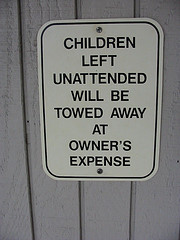 The ladies of io9 kicked off a neatly polarised debate over the weekend with two opposing articles about YA or “young adult” science fiction. Charlie Jane Anders says that YA is science fiction’s salvation:
The ladies of io9 kicked off a neatly polarised debate over the weekend with two opposing articles about YA or “young adult” science fiction. Charlie Jane Anders says that YA is science fiction’s salvation:
“While the “real” science fiction publishers are chasing a shrinking — and graying — readership, tweens and teens are discovering SF for themselves, thanks to books from a diverse range of writers. Best of all, YA science fiction isn’t aimed at a subculture, but at everybody of a particular age.”
Meanwhile Annalee Newitz begs us to stop writing young adult sf:
“… I object to the idea that young people need their own special, segregated genre of books, as if their minds are so dramatically different from adult minds that they require their own category of fantasy. Once a person has reached adolescence, relegating their reading material to its own gated subgenre seems at best condescending and at worst censorious.”
I’ll happily admit to falling into the latter camp. It’s not even a science fiction specific issue for me; no teenager enjoys being patronised with material specially designed for their age demographic, because all a teenager wants is to be treated like an adult. Plus I’ve worked in a public library, and I can tell you that a lot more adults borrow supposedly YA titles than kids in their early teens. [image by pingnews.com]
So, “Young Adult” books – a shot-in-the-arm for genre fiction, or a flash-in-the-pan from the marketing people?
If the only tacit objection to YA is the fact that there’s a certain nominal target audience, that really isn’t an objection at all. It’s like objecting that Romances are marketed to women, or certain types of SF are aimed at adolescent boys (of any given age 🙂
YA is not just defined by the audience, but by its content. YA is not just aimed at teenagers, but (and I think more important) it is ABOUT teenagers. If someone writes a perfectly adult tale, with adult language, that happens to have characters in their teens, there’s a pretty good chance it will be marketed as YA, not because of some condescension or censorship, but because it will sell better.
I agree with Annalee and you about children’s literature. It’s only been in my 20s that I’ve really been aware of YA fiction, as I missed it entirely when I was the “right age.” Which I think happens to a fair number of kids.
At the same time I’m not sure that it’s such a bad thing, in terms of the state of the genre. YA books sell well (this is because of the roles of libraries?) and that’s not a bad thing for writers, at all. I do think that if a writer makes their first sales in the YA market, that *might* hinder their later success at an older market, but that’s just speculation.
SF has a long history with YA stuff. Hienlien being the easy example of this. Really its only in the last say, 20ish years that SF hasn’t been seen as an entirely “juvenile” literature, which I think makes this an even stranger debate.
i’ve always read sci-fi and fantasy novels and they were extremely difficult if not downright impossible to find when i was a kid. if it wasn’t for YA i don’t know that i would have been able to find good casual reading that was deemed “acceptable” for my age. even though the best YA crosses the line between youth and adult (‘golden compass’ i’m looking at you!) i still think the section itself plays an important role in exposing younger readers to more fantastical genres.